Tightening leverage ratio from July 1: Does not hinder corporate bond issuance activities
 |
In a recently released report, VIS Rating analysts said that the above regulation on tightening leverage ratios helps the legal framework for non-public companies become consistent with public companies under the Securities Law 2024 without hindering corporate bond issuance activities.
“We believe that the new regulation will have a negligible impact on private bond issuance activities. Our data on all non-public companies in Vietnam in the past three years shows that only about 25% of companies have a ratio exceeding 5 times or have negative equity,” the report said.
Although tightening the leverage ratio does not have a big impact on the market, VIS Rating also believes that high leverage is not the cause of slow bond repayment and recommends that investors should not consider this the most important factor when considering bond investment.
VIS Rating data shows that the reason why 182 businesses have been slow to pay bonds recently is not due to high leverage but mainly due to weak cash flow and poor liquidity management.
Specifically, less than 1/4 of the 182 enterprises mentioned above have a leverage ratio exceeding 5 times or negative equity. The leverage ratio of the remaining 3/4 enterprises with delayed bond payments is only 2.8 times, approximately equal to the average level of other issuers that do not have delayed bond payments.
According to the company's statistics, despite moderate leverage, 90% of delinquent bond issuers do not generate enough cash flow from operations to pay periodic interest or lack liquidity to repay the principal when due. Nearly 40% of delinquent bonds have very short maturities of 1 to 3 years, often used for long-term projects that do not generate timely cash flow. Without a stable cash flow, issuers have to rely heavily on refinancing, in other words, using new debt to pay old debt. As a result, 85% of delinquencies occur within the first three years of issuance.
In addition, about 40% of the delinquent bonds are secured by assets that are difficult to value or liquidate, such as receivables related to real estate projects, business cooperation contracts and income rights from future projects. The lack of effective debt restructuring mechanisms and limited application of legal approaches further increase the rate of delinquency.
Therefore, although leverage is considered one of the risks to take into account, VIS Rating experts recommend that investors should consider many factors - especially the ability to generate cash flow - rather than just looking at financial leverage when buying corporate bonds.
The National Assembly officially legalizes Resolution 42, "finalizing" the right to seize collateral assets of credit institutions.
With 435/443 delegates voting in favor, the National Assembly on the morning of June 27 passed the Law amending and supplementing a number of articles of the Law on Credit Institutions (CIs). Accordingly, CIs have the right to seize collateral assets, but the seized collateral must meet the conditions prescribed by the Government .
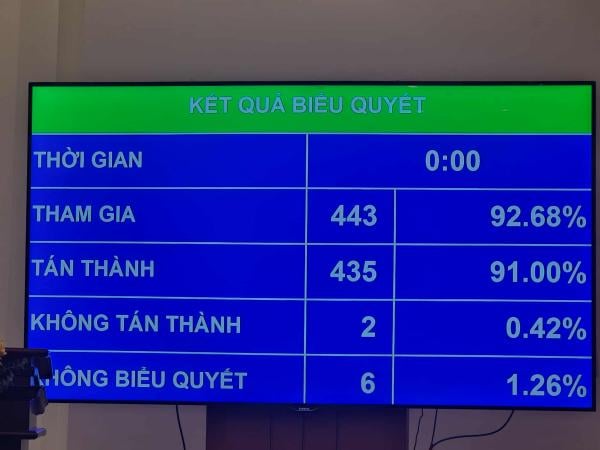 |
Presenting the report on receiving and explaining the opinions of the National Assembly Standing Committee on the draft Law amending and supplementing a number of articles of the Law on Credit Institutions before the button-pressing, the Governor of the State Bank of Vietnam said that the National Assembly Standing Committee agreed with the decentralization of authority to decide on special loans for loans with interest rates of 0%/year and loans without collateral from the Prime Minister to the State Bank of Vietnam . At the same time, he requested the Government to continue perfecting regulations on special loan interest rates based on the opinions of competent authorities, ensuring consistency with practice and the monetary policy management mechanism.
Regarding this content, the Government has proposed to adjust the wording of the draft Law to ensure that special lending by the State Bank is only carried out when credit institutions fall into a state of extreme liquidity difficulty or to implement a recovery plan or a compulsory transfer plan with the goal of protecting the legitimate rights of depositors and ensuring the safety of the credit institution system.
Specifically, the draft Law stipulates: "The State Bank decides to grant special loans with or without collateral to credit institutions in the cases specified in Clause 1, Article 192 of this Law. The collateral for special loans from the State Bank is as prescribed by the Governor of the State Bank. The interest rate for special loans of the State Bank is 0%/year".
The Government will have detailed instructions on the conditions for secured assets to be seized from credit institutions.
The Law amending and supplementing a number of articles of the Law on Credit Institutions, which was just passed this morning, officially legalizes the right to seize collateral of credit institutions.
Previously, the National Assembly Standing Committee requested a thorough review of regulations related to the conditions for the right to seize collateral of bad debts; clarify the roles, responsibilities, and coordination mechanisms between the People's Committees at the commune level and the police at the commune level to ensure the legitimate rights and interests of the person whose collateral is seized and related parties. At the same time, it requested the Government to continue to inherit 02 regulations in Resolution No. 42/2017/QH14 dated June 21, 2017 of the National Assembly on piloting the handling of bad debts of credit institutions.
The Government's report and explanation stated that the draft Law only stipulates the participation of the People's Committee at the commune level and the police at the commune level in the process of confiscating property. Therefore, it is basically consistent with the orientation on rearranging and reorganizing administrative units at all levels and building a 2-level local government model.
The Government accepts the inheritance of 2 provisions in Resolution No. 42/2017/QH14 and revises the draft Law in the direction of adding at Point d, Clause 2, Article 198a the condition that "the secured property is not a disputed property in a case that has been accepted but has not been resolved or is being resolved at a competent Court"; at the same time, adding at Point c, Clause 3, Article 198a the form of information disclosure "posting a notice at the headquarters of the People's Committee of the commune level where the guarantor registers the address according to the guarantee contract and the headquarters of the People's Committee of the commune level where the secured property is located" before proceeding to seize the secured property which is real estate. However, for secured property which is movable, due to the "mobile" and easily movable nature of the movable property, the Government would like to maintain the form of information disclosure according to the draft Law submitted to the National Assembly Standing Committee for comments.
In addition, to ensure that the procedures for seizing secured assets are carried out strictly to both remove obstacles and minimize possible impacts, the Government proposes to amend the draft Law in the direction of adding the provision that "secured assets to be seized must meet the conditions prescribed by the Government".
The Government said that the drafting agency will coordinate with relevant agencies, ministries and branches (Ministry of Public Security, Ministry of Justice, Ministry of Foreign Affairs, etc.) to study the conditions of collateral assets of bad debts that credit institutions are entitled to seize in order to concretize the policy of developing the private economy according to Resolution No. 68-NQ/TW.
The Draft Law also stipulates that credit institutions, foreign bank branches, debt trading and handling organizations must carry out information disclosure procedures prescribed in Clauses 3 and 4, Article 198a, and must develop and promulgate internal regulations on the order and procedures for seizing secured assets, including regulations when authorizing the seizing of secured assets.
Return of collateral as evidence in criminal cases for bank handling
Regarding collateral that is evidence in a criminal case, material evidence, and means of administrative violation in an administrative violation case, the Government has accepted the opinion of the National Assembly Standing Committee and revised Article 198c of the draft Law in the direction of regulating the return of collateral that is evidence in a criminal case at the request of the secured party if the secured contract has an agreement that the secured party agrees to allow the secured party to seize the collateral of the bad debt when the secured property is handled in accordance with the provisions of law on securing the performance of obligations.
The Government would like to accept and remove the content related to the return of exhibits and administrative means in administrative violations in the draft Law amending and supplementing a number of articles of the Law on Credit Institutions to focus on the draft Law amending and supplementing a number of articles of the Law on Handling of Administrative Violations.
Regarding the Law's effectiveness, the National Assembly Standing Committee approved the Government's plan to remove the transitional provisions for special loans decided by the State Bank before the effective date of this Law and to stipulate the effective date of the Law from August 1, 2025.
However, to have enough time to research and develop a Government Decree regulating the conditions of collateral for bad debts and ensuring the implementation of the Law, the Government proposes that the effective date of the draft Law is from October 15, 2025.
It takes 20-25 years of income to buy a house, young people crave long-term preferential credit packagesTo buy a 70m2 apartment, priced at 3-4 billion VND in big cities, young people need 20-25 years of income. This figure shows that the housing price/income ratio in Vietnam is very high, meaning it is very difficult to access.
Speaking at the workshop “Effective financial leverage - Housing opportunities for young people” on the morning of June 26, Ms. Ha Thu Giang, Director of the Department of Credit for Economic Sectors (State Bank of Vietnam) said that the banking industry is implementing many solutions to prioritize credit capital and synchronously implement solutions to help young people have housing.
“Credit flows are directed to the low-cost housing segment,” said Ms. Giang.
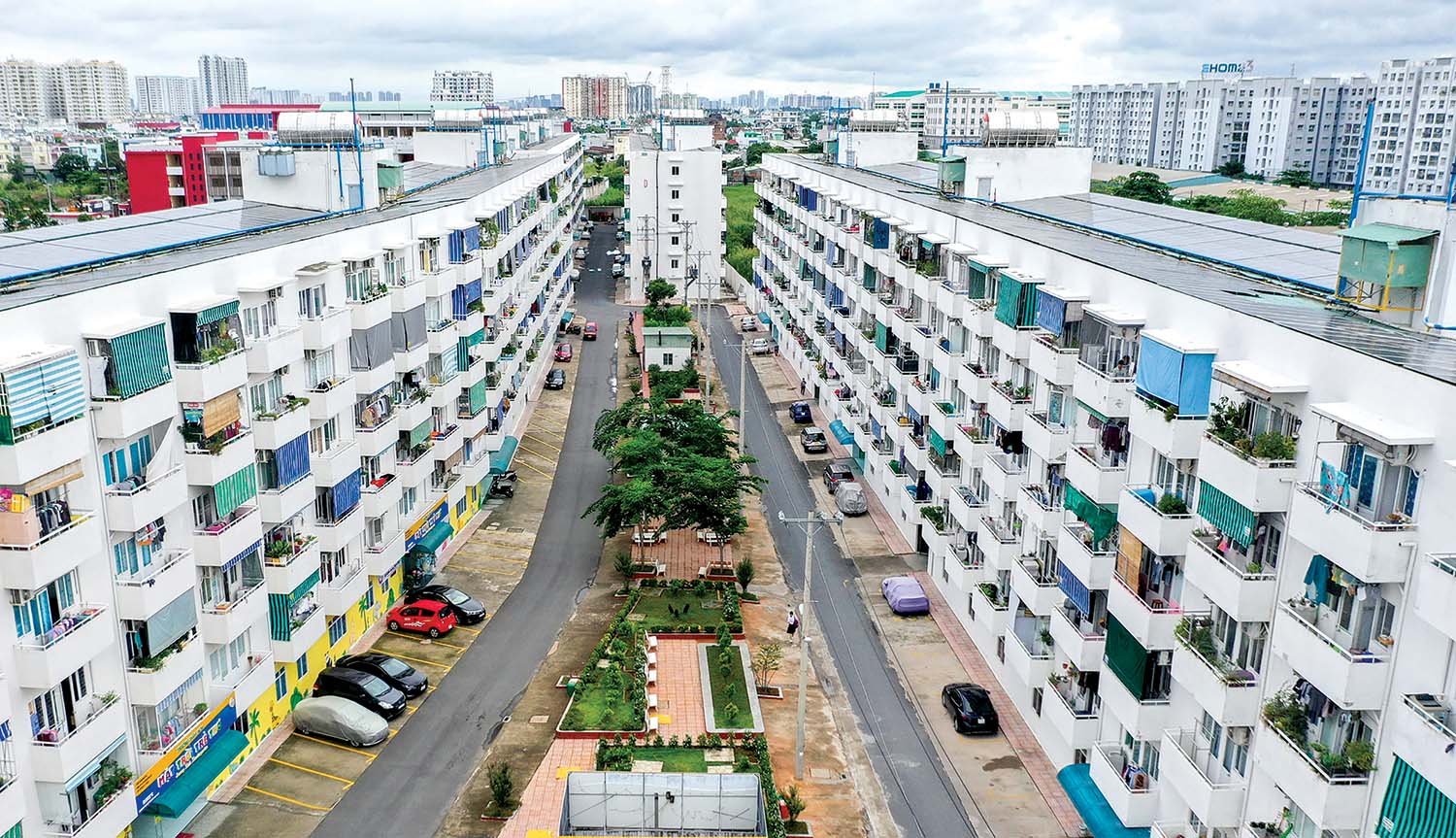 |
With the social housing credit package of 145,000 billion VND with 9 participating banks, Ms. Giang said that the current lending interest rate is 5.9%/year, 1.5-2% lower than the normal lending interest rate. For young people under 35 years old, the State Bank (SBV) has implemented a preferential interest rate policy, 2% lower for the first 5 years, 1% lower for 10 years than the average medium and long-term interest rate of the large bank group.
Although the results are more positive than before, the amount of capital disbursed for the above programs is still not much. According to the State Bank, the reason is that the market has few projects with prices suitable for the payment ability of these subjects.
Mr. Ha Quang Hung, Deputy Director of the Department of Housing and Real Estate Market Management (Ministry of Construction) said that recent real estate market surveys show that young people (around 22-40 years old) are becoming the main customer group in the housing market, gradually replacing the middle-aged group.
“The demand for home ownership among young people in Vietnam is at an unprecedented high, both in terms of quantity and proportion in the structure of home buyers. However, the increase in people's income has not kept up with the increase in housing prices, leading to the actual ability of most young people to own a house is still very limited. To buy an average house (70m2, selling price 3-4 billion VND) in big cities, young people need 20-25 years of income. This figure shows that the house price/income ratio in Vietnam is very high (very difficult to access)”, Mr. Hung said.
In reality, most young urban couples with an average income of 20-30 million VND/month have to rent a house or live with their family. Very few people have enough savings to buy a commercial house when they reach the age of 30 without financial support from their family or preferential credit programs.
Analyzing the barriers, Mr. Hung said that real estate supply is still limited and prices are high compared to the affordability of the majority of people, including young people.
According to the representative of the Ministry of Construction, young people have difficulty in owning a house due to personal financial barriers as well as credit barriers. Although banks are willing to lend money to buy houses, commercial loan interest rates are still quite high, and loan terms are not long enough compared to demand. Only when there are preferential packages with low interest rates (5-6%) fixed for a long period (20-30 years) will young people dare to consider borrowing to buy a house.
To solve the current supply-demand problem, Mr. Ha Quang Hung said that the first solution is to increase the housing supply. To do so, it is necessary to review and perfect the institutions and laws related to housing and the real estate market, ensuring consistency, synchronization and feasibility.
In addition, it is necessary to effectively implement Decree No. 75/2025/ND-CP, a Government decree detailing the implementation of Resolution No. 171/2024/QH15 on piloting the implementation of commercial housing projects through agreements on receiving land use rights or having land use rights.
Regarding social housing, Mr. Hung noted that the National Assembly has passed Resolution No. 201/2025/QH15 on piloting a number of specific mechanisms and policies for social housing development, effective from June 1, 2025, adjusting policies in a more flexible and accessible direction.
According to him, localities need to implement and complete social housing development targets according to Decision No. 444/QD-TTg dated February 27, 2025 of the Prime Minister and develop worker accommodation in industrial parks and housing for armed forces.
Another important solution that Mr. Hung emphasized is developing long-term rental and hire-purchase models.
Regarding finance, Mr. Ha Quang Hung said that we should increase the family deduction for calculating personal income tax, allow partial deduction of interest on first-time home loans from taxable income... to stimulate young people to buy houses.
In addition, research on a housing savings fund model, allowing workers to deduct a portion of their monthly salary into the fund to get a home loan with preferential interest rates, or to reward money into housing savings accounts for young people who accumulate to a certain level.
Finally, it is necessary to improve access to credit and implement long-term preferential loan packages. It is necessary to arrange sufficient and timely preferential loan capital from the central budget to the Social Policy Bank for preferential loans to buy and hire-purchase social housing; speed up disbursement of the 145,000 billion VND credit program, consider extending the loan term and preferential loan period.
Overcoming the shortcomings of the 2% interest rate support package
The Ministry of Finance and the State Bank of Vietnam (SBV) are drafting a guiding decree to implement the 2% interest rate support policy.
The State Bank must have a plan to effectively implement the policy.
Resolution 198/2025/QH15 of the National Assembly on a number of special mechanisms and policies for private economic development clearly states that enterprises in the private economic sector, business households, and individual businesses are supported by the State with an interest rate of 2%/year when borrowing capital to implement green, circular projects and apply the environmental, social, and governance (ESG) standards framework.
Enterprises are waiting for specific instructions to access this preferential capital source. “Although the Resolution has been issued, enterprises still cannot access preferential capital. I hope the State Bank will soon issue specific and detailed instructions for commercial banks to implement,” Mr. Dinh Hong Ky, Vice President of the Ho Chi Minh City Business Association (HUBA) suggested.
National Assembly Delegate Hoang Quoc Khanh (Lai Chau) said that the guidance on implementing preferential policies and 2% interest rate support for businesses undergoing digital and green transformation must be carefully studied, otherwise it will fall into the "rut" of the previous implementation of the 2% interest rate support policy (economic recovery interest rate support package according to Resolution 43/2022/QH15).
During the question-and-answer session last week, Finance Minister Nguyen Van Thang said that the Ministry of Finance has learned from experience with the 2% interest rate support policy. The Government has issued Resolution 139/NQ-CP promulgating the Government's Plan to implement Resolution 198/2025/QH15. Accordingly, the implementation of this interest rate support policy will be carried out from financial funds and the banking system.
“The Ministry of Finance will coordinate with the State Bank of Vietnam to develop a decree to overcome shortcomings in the previous 2% interest rate support policy, ensuring feasibility in implementation. The Government will allocate appropriate and sufficient resources to implement this policy,” Minister Nguyen Van Thang affirmed.
It is known that Resolution 139/NQ-CP of the Government assigned the State Bank to submit to the Government for promulgation a document guiding the State policy of supporting interest rates of 2%/year through the commercial banking system for enterprises in the private economic sector, business households, and individual businesses to borrow capital to implement green, circular projects and apply the ESG standard framework; to be completed in 2025.
 |
According to SBV Governor Nguyen Thi Hong, the resources to implement the policy of supporting 2% interest rate when borrowing capital to implement green and circular projects and apply ESG standard framework as required by Resolution 68-NQ/TW of the Politburo on private economic development come from the budget. The Ministry of Finance is building a lending channel from funds.
In case of borrowing from commercial banks, the State Bank will coordinate with the Ministry of Finance to provide clear instructions to overcome the shortcomings of the 2% interest rate support package in the previous economic recovery program.
“The State Bank of Vietnam has sent a document to the Ministry of Finance to consider incorporating it into the corporate income tax policy for enterprises borrowing capital from banks according to the subjects of Resolution 68-NQ/TW. In the coming time, we will continue to closely coordinate to implement the policies of the Party Central Committee, the Politburo, and the National Assembly,” said Governor Nguyen Thi Hong.
National Assembly Chairman Tran Thanh Man requested the Governor of the State Bank, immediately after the National Assembly session (expected to end at the end of June 2025), to have an effective plan and solution on the 2% support policy in the spirit of Resolution 198/2025/QH15.
Economic experts recommend that the implementation of the 2% interest rate support policy for businesses implementing green and circular economy projects needs to be transparent and clear about the subjects and criteria; and simple in procedures so that businesses and banks can easily implement it, avoiding the mechanism of asking and giving.
Allocate sufficient preferential resources to support small and medium enterprises.
In addition to the 2% interest rate support, in the spirit of Resolution 198/2025/QH15, small and medium enterprises, innovative startups, etc. will have access to preferential capital from the Small and Medium Enterprise Development Fund. The Ministry of Finance said that it is urgently drafting guidance documents and will allocate resources to the Small and Medium Enterprise Development Fund so that the Fund can provide new loans at preferential interest rates.
In addition, the Government encourages commercial banks to increase preferential loans to small and medium enterprises.
It is known that Decree 139/NQ-CP of the Government assigned the Ministry of Finance to submit to the Government a document guiding the State policy of supporting interest rates of 2%/year through non-budgetary state financial funds for enterprises in the private economic sector, business households, and business individuals to borrow capital to implement green and circular projects and apply the ESG standard framework; to be completed in 2025. At the same time, review the current decree on the organization and operation of the Small and Medium Enterprise Development Fund to strengthen the Fund's business support activities.
Mr. Mac Quoc Anh, Vice President and General Secretary of the Hanoi Small and Medium Enterprises Association, said that in addition to strengthening the role of the Small and Medium Enterprise Development Fund, it is necessary to perfect the model of Credit Guarantee Funds for small and medium enterprises at both central and local levels. Only when the Fund participates in the guarantee, will banks be bold enough to lend to small and medium enterprises.
VCCI proposes to abolish gold import and export licenses
VCCI recommends removing gold import-export licenses and individual gold import-export licenses because it will create many "sub-licenses", increasing administrative procedures and compliance costs for businesses.
 |
The Vietnam Federation of Commerce and Industry (VCCI) has just sent an official dispatch to the State Bank of Vietnam (SBV) requesting comments on the Draft Decree amending and supplementing a number of articles of Decree 24/2012/ND-CP on the management of gold trading activities.
Removing some business conditions for enterprises producing gold bars and gold jewelry
Accordingly, regarding the conditions for granting licenses to produce gold bars, the Draft stipulates a minimum charter capital requirement of VND1,000 billion or more for enterprises. VCCI cited feedback from enterprises, saying that this regulation is too strict, is too big a barrier, and will eliminate most enterprises from the ability to participate in the market. This could lead to a situation where only a few enterprises can participate in the market, limiting competition, not diversifying supply sources, thereby affecting the rights and choices of the people.
Regarding gold jewelry and handicraft business, the current draft Decree continues to maintain business conditions for gold jewelry and handicraft business activities.
According to VCCI, maintaining this business condition is not appropriate.
Firstly, it is inconsistent with the provisions of the Investment Law. The Investment Law stipulates that only industries that affect national defense, security, order, social safety, social ethics or public health are subject to business conditions. Meanwhile, gold jewelry and handicrafts are ordinary consumer goods that do not affect public interests to the extent necessary to apply restrictions.
Second, there are no special requirements for safety or management. Specifically, the current business conditions for gold jewelry and handicrafts are mainly related to facilities and equipment - similar to other types of regular commodity business. These requirements are not linked to the goal of protecting public interests or preventing specific risks, so there is not enough basis to maintain it as a conditional industry.
Third, it is not consistent with the administrative reform policy. Continuing to regulate business conditions in this field goes against the spirit of Resolution No. 68/NQ-TW on administrative procedure reform, which requires minimizing administrative intervention, eliminating barriers and the “ask-give” mechanism in investment and business activities.
At the same time, this regulation is not really suitable and supportive of the orientation of "Encouraging the development of the domestic gold jewelry market to gradually turn Vietnam into a center for manufacturing and exporting high-quality gold jewelry" that the General Secretary concluded at the meeting with the Central Policy and Strategy Committee on May 28, 2025.
Therefore, VCCI proposed that the State Bank remove regulations on business conditions for gold jewelry.
Eliminate "sub-licenses" for gold imports
Regarding gold bar imports, according to VCCI, the draft decree amending Decree 24 regulates gold bar imports in a multi-level control direction, including: Gold import-export license; Annual import-export limit; Import-export license for each time;
Requiring the above licenses at the same time will create many “sub-licenses”, increasing administrative procedures, compliance costs and causing difficulties for enterprises’ production and business activities. Therefore, VCCI recommends that the drafting agency amend the regulations in the direction of simplifying procedures while still meeting management requirements.
Specifically, VCCI proposed to abolish the gold import-export license. The reason is that gold import licenses are only issued to gold production enterprises. Meanwhile, gold production enterprises are already licensed and strictly managed by the State Bank. Therefore, requiring an additional separate import-export license is unnecessary, in the nature of a “license within a license”, increasing unnecessary procedures and costs.
VCCI also proposed to abolish import-export licenses for each time because the State Bank has controlled the annual limit for businesses. In the context of the gold market having many fluctuations and being strongly affected by domestic and foreign factors, waiting for each license can cause businesses to miss business opportunities and reduce flexibility in operations.
The regulation on one-time licensing can be speculated to help the management agency have information on the import-export activities of enterprises, to be proactive in management. This can be done by requesting the customs agency to connect data with the State Bank, or requesting enterprises to periodically report on the implementation of import-export limits. These measures both ensure effective supervision and create favorable conditions for enterprises to be proactive in business activities.
Regarding imported gold, the draft stipulates that enterprises are only allowed to import gold bars and raw gold from manufacturers certified by the London Gold Market Association. VCCI requested the drafting agency to clarify the reason for this regulation.
Clarifying the content of gold derivatives and gold account trading
The draft Decree amending and supplementing a number of articles of Decree 24/2012/ND-CP on the management of gold trading activities mentions other gold trading activities. According to VCCI, some regulations on this content are not clear and specific.
Regarding investment conditions, the draft stipulates that other gold trading activities are included in the List of restricted goods and services. However, this basis is no longer appropriate. This list was previously regulated in the Commercial Law and guiding documents, but in reality has not been applied for many years and was officially abolished in Decree 173/2024/ND-CP. According to the Investment Law 2020, there are only three types of lists: prohibited investment and business sectors; conditional investment and business sectors; and free investment and business sectors.
The draft stipulates that this activity can only be carried out when there is: (i) a decision of permission from the Prime Minister; and (ii) a license from the State Bank. However, neither the draft nor Decree 24/2012/ND-CP stipulates the conditions for permission, licensing, nor the procedures. Such a provision is inconsistent with Article 7.5 of the Investment Law 2020 on mandatory contents of regulations on investment and business conditions.
Therefore, VCCI proposed that the State Bank supplement regulations on conditions, procedures and licensing procedures for this activity.
Regarding gold derivatives, the draft stipulates that gold derivatives are one of the gold trading activities, which are subject to the Decree. However, the Draft and Decree 24/2012/ND-CP do not stipulate the mechanism and conditions for this trading activity. The Decree only stipulates the legal mechanism for gold derivatives activities of credit institutions, which are implemented in accordance with the Law on Credit Institutions. VCCI requests the drafting agency to clarify: can other organizations and enterprises (such as gold trading enterprises, financial institutions, etc.) participate in gold derivatives activities? In that case, what are the conditions and licensing procedures?
Similarly, regarding gold trading activities on accounts, VCCI also requested the State Bank to clarify because the draft revised decree does not specify which organizations and enterprises can provide this service? Which investors can participate? What are the conditions, procedures, and processes? How are the regulations on transactions, order matching, and payments implemented?
Exchange rate still under double pressure
The US Federal Reserve (Fed) continuing to keep its operating interest rate unchanged and risks related to reciprocal taxes continue to be challenges for the exchange rate, leading to a strong increase from the beginning of the second quarter of 2025.
As expected by experts, the Fed decided to keep the reference interest rate unchanged in the June meeting last week. In the announcement after the meeting, the Fed commented that the labor market remained strong and the unemployment rate remained low. Inflation over the past three months has cooled down, but Fed Chairman Jerome Powell emphasized that this only reflects the past, and warned that inflation would rise to 3% by the end of this year.
According to the Fed's dot plot, members of the Federal Open Market Committee (FOMC) still expect a total of 0.5 percentage points in interest rate cuts in 2025, but most believe that the operating interest rate will only decrease by 0.5 percentage points until 2027. Investors are also betting on the possibility of the Fed cutting interest rates by another 25 basis points at the September meeting.
Although the policy statement did not mention the conflict between Israel and Iran, the Fed Chairman said that he was still monitoring the situation. Energy price spikes caused by conflicts are usually temporary and do not have a long-term impact on inflation, but the Fed may be ready to respond promptly to new information.
Similarly, the Bank of England (BoE) also kept the interest rate unchanged at 4.25% amid high inflation in the country and increasing external risks due to global trade tensions and conflicts in the Middle East.
Previously, the European Central Bank (ECB) cut interest rates for the eighth time since June 2024, bringing the deposit rate down to 2%. However, in a recent message, ECB President Lagarde said that the ECB is approaching the end of the cycle, an indicator that it may pause after the continuous cuts in recent times.
Meanwhile, the Swiss National Bank cut its policy interest rate by 25 basis points, bringing it to zero for the first time since introducing negative interest rates in late 2022. It cited falling inflation and a gloomy global economic outlook. Swiss consumer prices fell for the first time in four years, hit by falling tourism and oil prices. Swiss GDP growth accelerated in the first quarter of 2025, partly due to early exports to the US before the new tariffs were introduced, but is expected to slow in the coming quarters.
Continuing to react strongly right after the Fed's decision to keep interest rates unchanged, US President Donald Trump launched a series of strong attacks on the Fed Chairman through posts on the social network Truth Social, with calls for an immediate interest rate cut and accusing Chairman Powell of causing hundreds of billions of dollars in damage to the US economy by deciding not to cut interest rates.
Meanwhile, the risk of high US interest rates and the unknown outcome of tariff negotiations also put pressure on exchange rates in developing countries. The VND/USD buying rate at commercial banks by the end of last week approached 26,000 VND/USD.
At Vietcombank, USD is traded at 25,922 VND/USD (buying by transfer) and 26,282 VND/USD (selling). The selling rate has been at the highest level in the entire previous week. Since the beginning of the second quarter, the exchange rate at Vietcombank has increased by 2.1%, significantly contributing to the total increase of 2.86% compared to the end of 2024. The central exchange rate also recorded a corresponding increase.
According to analysts from MBS, the USD is expected to maintain its strength this year thanks to the high level of trade protectionism and high interest rates in the US as the Fed is expected to cut interest rates only twice.
At the same time, if the corresponding tax is kept at a high level, it will be a big challenge for Vietnam's export activities and foreign investment attraction, the foreign currency supply will be tightened and create more pressure on the exchange rate. If the two sides successfully negotiate to reduce the tax rate, it will contribute significantly to stabilizing the exchange rate, interest rates, and strengthening the key activities of the economy such as export and foreign investment attraction.
The content of the upcoming negotiations will be a big unknown that will affect macro factors, including exchange rates. With less than 20 days left until the end of the 90-day US tax suspension, the extension of the tariff negotiations beyond the July 8 deadline is being mentioned.
According to the prediction of the Goldman Sachs group of economic experts, the US will extend the time for tariff negotiations with countries, instead of sticking to the original deadline. Previously, US Treasury Secretary Scott Bessent mentioned the possibility of giving more time for trade negotiations and extending the deadline with countries that show goodwill.
In the context of increasing external pressure, the State Bank is still taking flexible management measures. In May, the State Bank continued to maintain a net withdrawal of more than VND21,400 billion. According to analysts from FiinRatings, the flexible adjustment of the central exchange rate allows the market more room for self-regulation.
Resolution 68: Commercial banks help the private economy "take off"
Credit capital is considered the "bloodline" for the economy in general and businesses in particular, in which commercial banks play a particularly important role in supplying, regulating, and ensuring the circulation and smooth operation of this bloodline system.
In order for the private economy to truly "take off" and promote its role as "the most important driving force of the national economy", Resolution 68-NQ/TW of the Politburo on private economic development as well as related Resolutions and directives have put forward very specific and clear viewpoints, goals, roadmaps, tasks and solutions. One of the important tasks and solutions proposed is to diversify capital sources; create the most favorable conditions for the private economy to access capital resources...
Sharing at the seminar "Promoting the role of commercial banks in implementing Resolution 68" organized by the Government Electronic Information Portal on the morning of June 27, Mr. Nguyen Phi Lan, Director of the Department of Forecasting, Statistics - Monetary and Financial Stabilization (State Bank, SBV) affirmed that Resolution 68 has created conditions for the private enterprise sector to access capital, essentially diversifying capital sources, not only capital sources from the banking sector but also other capital sources.
Immediately after Resolution 68 was issued, the Governor of the State Bank issued action plans No. 2415 and 2416 to implement Resolution 68 as well as to concretize Resolutions 138 and 139 of the Prime Minister.
This action plan has specified all action programs, specifically to all units under the State Bank as well as commercial banks and credit institutions to deploy solutions to accompany businesses, to specify Resolution 68 as well as the Prime Minister's direction to people, businesses, banks, how to create the best conditions for private enterprises to access capital, and to accompany private enterprises in the development process.
By June 18, 2025, the total credit balance of the whole system reached 16.73 million billion VND, an increase of 7.14% compared to the end of 2024, an increase of 18.71% compared to the same period in 2024 (in the same period in 2024, the credit balance increased by +3.87% compared to December 2023).
Statistics from the State Bank show that up to 100 credit institutions have incurred outstanding debt to the private economic sector. Of which, about 209,000 small and medium enterprises have incurred outstanding debt at credit institutions, especially commercial banks. This confirms that credit flows have spread to all segments of enterprises and all segments of the economy.
“This figure not only reflects the strong development of the private economic sector but also reflects the efforts and endeavors of the banking industry for the private economic sector,” said Mr. Lan.
From the perspective of a commercial bank representative, Ms. Nguyen Bao Thanh Van, Deputy General Director of the Vietnam Joint Stock Commercial Bank for Industry and Trade (VietinBank), said that upon receiving Resolution 68, VietinBank welcomed this policy with a positive spirit and great expectations. “This is not only a temporary solution, but also a long-term visionary policy to promote socio-economic recovery and development,” Ms. Van said.
According to Ms. Van, the support solutions proposed in the Resolution have contributed to promoting the production and business activities of enterprises in a more positive direction, thereby increasing the demand for credit in a "healthy" way. When enterprises are healthy, have a good financial foundation and operate stably, credit institutions will also have more advantages in providing capital - both safely and effectively.
VietinBank has developed specialized credit packages for private enterprises and small and medium-sized enterprises (SMEs), with preferential interest rates from 5%/year - lower than the average 12-month deposit interest rate (currently at 5.2 - 5.3%). Loan packages are designed specifically for each industry and business target to ensure the highest suitability and efficiency.
In addition to supporting financial solutions, VietinBank also provides customers with non-financial solutions and consulting support for businesses. Ms. Van said that small businesses are a group of customers who have difficulty accessing banking services and are unfamiliar with regulations on taxes, accounting or financial transparency. VietinBank has supported them to improve their financial capacity and improve financial reports to increase their chances of accessing preferential and higher-quality capital sources.
According to experts at the seminar, increasing resources for the private economic sector, including capital resources, must not be spread evenly and widely but must have focus, key points, and selection.
Dr. Dau Anh Tuan, Deputy General Secretary of the Vietnam Federation of Commerce and Industry (VCCI), said that capital is limited, so it must be directed to activities that create the most competitive advantages and the best effects on society.
“I think that capital should be opened up and promoted, encouraged to flow into the production sector, where specific goods and services are created, where jobs are created for many workers, where many social security issues are solved. Therefore, the industries in which we have strengths, such as agriculture, are not only businesses but also many farmers,” Mr. Tuan suggested.
According to Mr. Tuan, small and medium enterprises still have difficulty accessing credit capital, especially small and micro enterprises - the sector that accounts for 97 - 98% of the total number of enterprises in Vietnam. "This group of enterprises has almost no access to the formal banking system. They often have to borrow from informal sources such as relatives, friends, and even from black credit, which poses many potential risks both financially and legally," Mr. Tuan stated the situation.
Referring to support tools such as the Small and Medium Enterprise Support Fund, Credit Guarantee Fund, etc., Mr. Tuan assessed that Resolution 68 has proposed many solutions to operate support and credit guarantee funds in a more effective and market-oriented manner. Mr. Tuan suggested that instead of operating as an administrative institution as before, funds should be organized in a more flexible way, ready to accept controlled risks to support the right subjects and targets.
However, in addition to supporting businesses, Mr. Nguyen Phi Lan noted the issue of creating a healthy competitive environment.
In Resolutions 138 and 139, the Prime Minister assigned the State Bank and ministries and branches, in addition to the issue of creating access to capital for enterprises, to carry out inspection and examination activities on issues related to lending, to ensure that capital is used for the right purpose, for the right lending target, to avoid the case of money flowing into risky areas, causing instability for the economy. The Prime Minister also assigned ministries and branches, including the State Bank, to implement this content.
“This is one of the solutions that both ensures businesses access to capital and ensures safety for the businesses themselves,” Mr. Lan affirmed.
Source: https://baodautu.vn/luat-hoa-quyen-thu-giu-tai-san-dam-bao-kien-nghi-bo-giay-phep-nhap-khau-vang-d316215.html


![[Photo] Students of Binh Minh Primary School enjoy the full moon festival, receiving the joys of childhood](https://vphoto.vietnam.vn/thumb/1200x675/vietnam/resource/IMAGE/2025/10/3/8cf8abef22fe4471be400a818912cb85)




![[Infographic] Notable numbers after 3 months of "reorganizing the country"](https://vphoto.vietnam.vn/thumb/1200x675/vietnam/resource/IMAGE/2025/10/4/ce8bb72c722348e09e942d04f0dd9729)







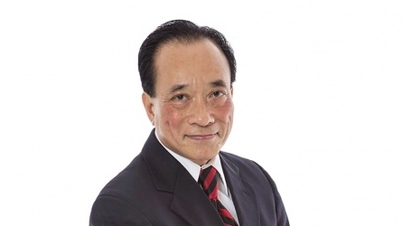




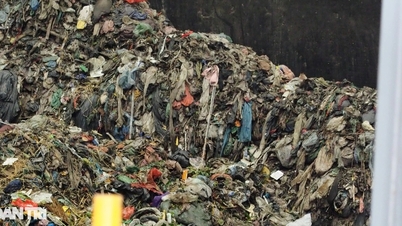
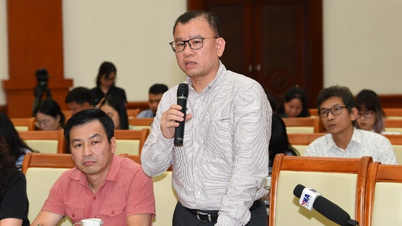


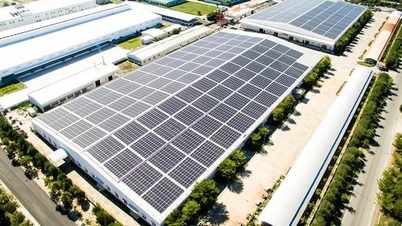








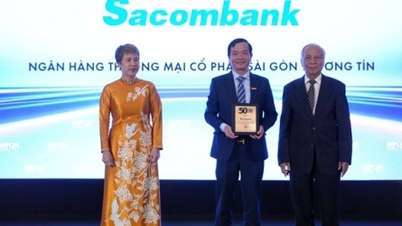


![[Photo] Prime Minister Pham Minh Chinh chairs meeting to deploy overcoming consequences of storm No. 10](https://vphoto.vietnam.vn/thumb/1200x675/vietnam/resource/IMAGE/2025/10/3/544f420dcc844463898fcbef46247d16)

































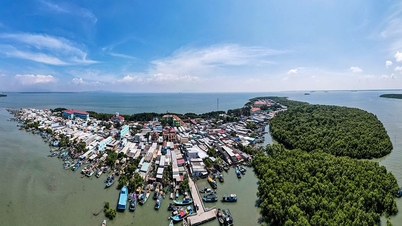


![[Infographic] Notable numbers after 3 months of "reorganizing the country"](https://vphoto.vietnam.vn/thumb/402x226/vietnam/resource/IMAGE/2025/10/4/ce8bb72c722348e09e942d04f0dd9729)
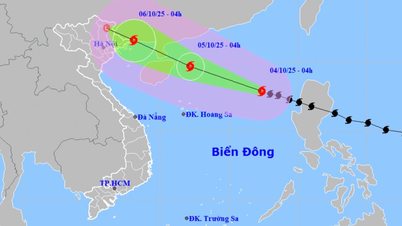









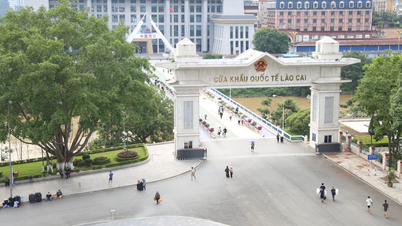


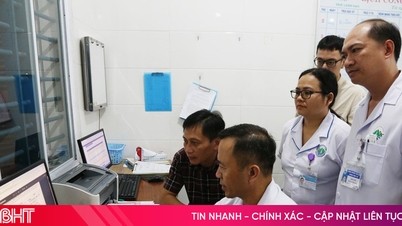



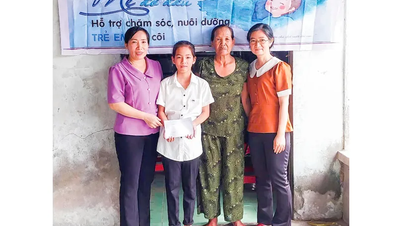












Comment (0)